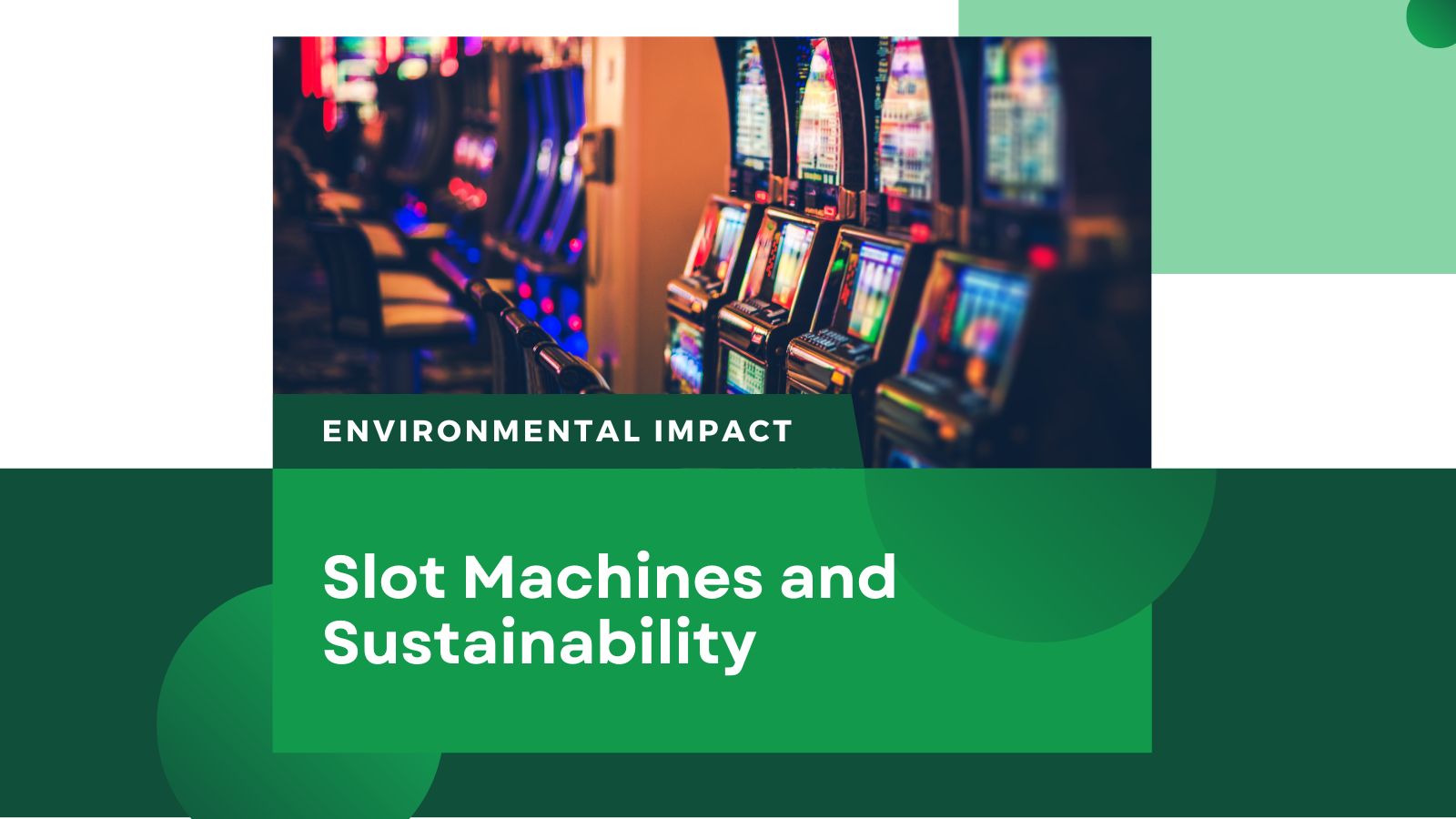The environmental impact of slot machines is a complex issue, with both physical and digital forms having unique implications. While the mechanics of slot machines themselves may not differ significantly, the infrastructure and operations surrounding them can have a substantial impact on the environment.
Physical Slot Machines
Brick-and-mortar casinos that house rows of physical slot machines can have a significant environmental footprint. These establishments require large amounts of energy to power the machines, as well as lighting, heating, and cooling systems to maintain a comfortable environment for patrons. The energy consumption of a casino’s slot machines, even when idle, can be considerable.
 Additionally, physical slot machines and their supporting infrastructure generate waste, including discarded gaming equipment, paper, and plastics. Casinos located in remote areas or highway service stations may also contribute to increased vehicle emissions as patrons travel to access these gambling facilities.
Additionally, physical slot machines and their supporting infrastructure generate waste, including discarded gaming equipment, paper, and plastics. Casinos located in remote areas or highway service stations may also contribute to increased vehicle emissions as patrons travel to access these gambling facilities.
Furthermore, the construction and maintenance of physical casinos can have long-term environmental consequences. The materials used in building these structures, along with the ongoing need for repairs and upgrades, contribute to a significant carbon footprint.
Digital Slot Machines (Online Slots)
The rise of online gambling has introduced a more environmentally-friendly alternative to physical slot machines. Online slots, hosted on servers and accessed through digital platforms, have a significantly lower energy footprint compared to traditional casinos. The energy demands of data centers and server farms that power online gambling are generally lower than the energy-intensive operations of physical casinos.
Furthermore, the digital nature of online slots eliminates the need for physical gaming materials, reducing waste generation. The convenience of online gambling also reduces the environmental impact associated with transportation, as players can access these services from the comfort of their homes.
To learn more about the differences between online slots and traditional slots, it’s important to consider not just the mechanics but the broader environmental implications. Running a room of slot machines with lighting, heating, and cooling could have a higher environmental impact than operating them digitally.
Broader Environmental Implications
Beyond the direct impacts of energy consumption and waste, the gambling industry also affects the environment through its indirect contributions. For example, the influx of tourists to gambling hotspots can strain local resources, increase pollution, and lead to habitat disruption. The water usage in casinos, especially those featuring water-intensive amenities like pools and fountains, can also be substantial.
Breakdown of Waste Generated by Casinos* (in kg/month)
| Waste Type | Description | Approximate Quantity (kg/month) |
|---|---|---|
| Paper Waste | Tickets, receipts, promotional materials, office paper, and other disposable paper products | 3,000 – 3,500 |
| Plastic Waste | Drink bottles, food packaging, plastic cups, straws, and discarded plastic components | 2,500 – 3,000 |
| Food Waste | Leftovers, spoiled food, and kitchen scraps | 2,000 – 2,500 |
| Electronic Waste (E-Waste) | Discarded electronic components from gaming machines, computers, and other electronic devices | 1,000 – 1,500 |
| Glass Waste | Bottles, glassware, and other glass items | 500 – 1,000 |
| Metal Waste | Cans, kitchenware, and components | 300 – 500 |
*This is an estimate for a typical casino, either in the US or globally
Casinos often promote luxury and opulence, which can come at a high environmental cost. The demand for exotic foods, high-end products, and extravagant entertainment options can drive unsustainable practices in various sectors, from agriculture to manufacturing.
Sustainability Initiatives in the Gambling Industry
As the gambling industry recognizes its environmental impact, there is a growing focus on implementing sustainability measures. Online gambling platforms are increasingly adopting eco-friendly practices, such as using renewable energy sources, implementing efficient data center cooling systems, and offering carbon offset programs.
Regulatory bodies and industry organizations are also pushing for greater environmental responsibility in the gambling sector. Measures like the ESG (Environmental, Social, and Governance) framework are guiding casino operators and online gambling providers to prioritize sustainability in their business models.
In addition to technological and operational changes, some casinos are investing in local environmental projects to offset their carbon footprint. This includes supporting renewable energy projects, participating in reforestation efforts, and contributing to community sustainability initiatives.
Conclusion
The environmental impact of slot machines is multifaceted, with both physical and digital forms presenting unique challenges and opportunities. While physical slot machines in casinos and other locations can have a significant environmental footprint, the rise of online gambling has introduced a more eco-friendly alternative. As the industry continues to evolve, a focus on sustainability and technological advancements can help mitigate the environmental impact of slot machines and the broader gambling sector.

